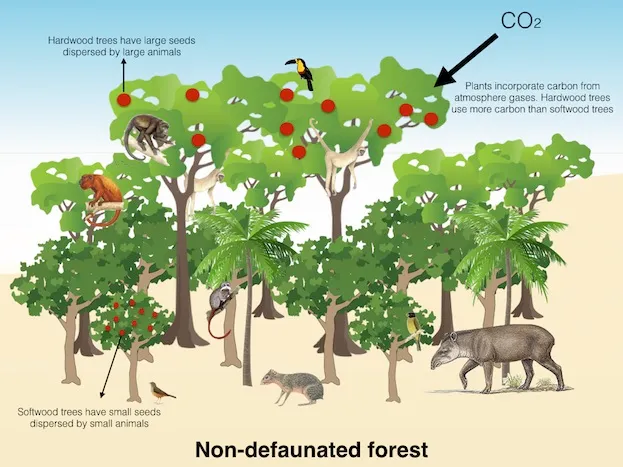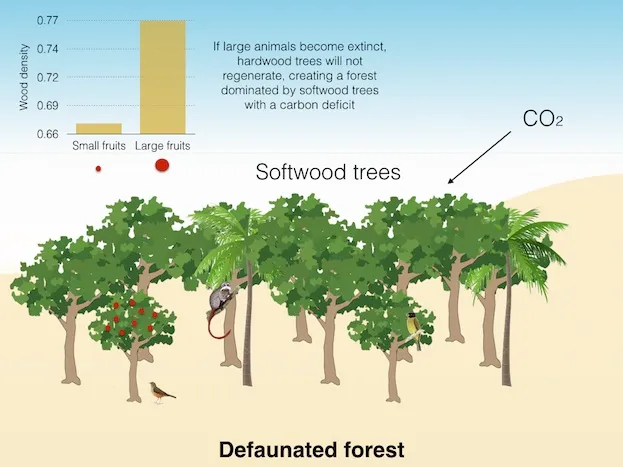According to researchers a decline in fruit-eating species, such as large primates, tapirs and toucans could effect tree species and therefore have an impact on climate change.
Animals disperse the seeds of associated with large trees and high wood density, which are more effective at capturing and storing carbon dioxide from the atmosphere than smaller trees.
Removing vertebrates from the ecosystem upsets the natural balance and leads to a loss of heavy-wooded large trees, resulting in less CO2 being locked away.

© Mauro Galetti
The study of more than 2,000 tree species and more than 800 animal species in Brazil’s Atlantic Forest was led by researchers from São Paulo State University, Brazil, in collaboration with the University of East Anglia (UEA), the Spanish National Research Council (CSIC) and the University of Helsinki, Finland.
Carolina Bello from São Paulo State University, added: "When we lose large frugivores we are losing dispersal and recruitment functions of large seeded trees and therefore, the composition of tropical forests changes. The result is a forest dominated by smaller trees with milder woods which stock less carbon.”

© Mauro Galetti
Large vertebrates in Brazil’s Atlantic Forest are threatened by hunting, illegal trade and habitat loss. Frugivores that are not targeted by hunters, such as small birds, bats and marsupials are only able to disperse small seeds, which are associated with small trees.
UEA’s Professor Carlos Peres says, “Intergovernmental policies to reduce carbon emissions from tropical countries have primarily focused on deforestation. Our research shows that a decline in large vertebrate populations and the loss of key ecological interactions also poses a serious risk for the maintenance of tropical forest carbon storage.”
